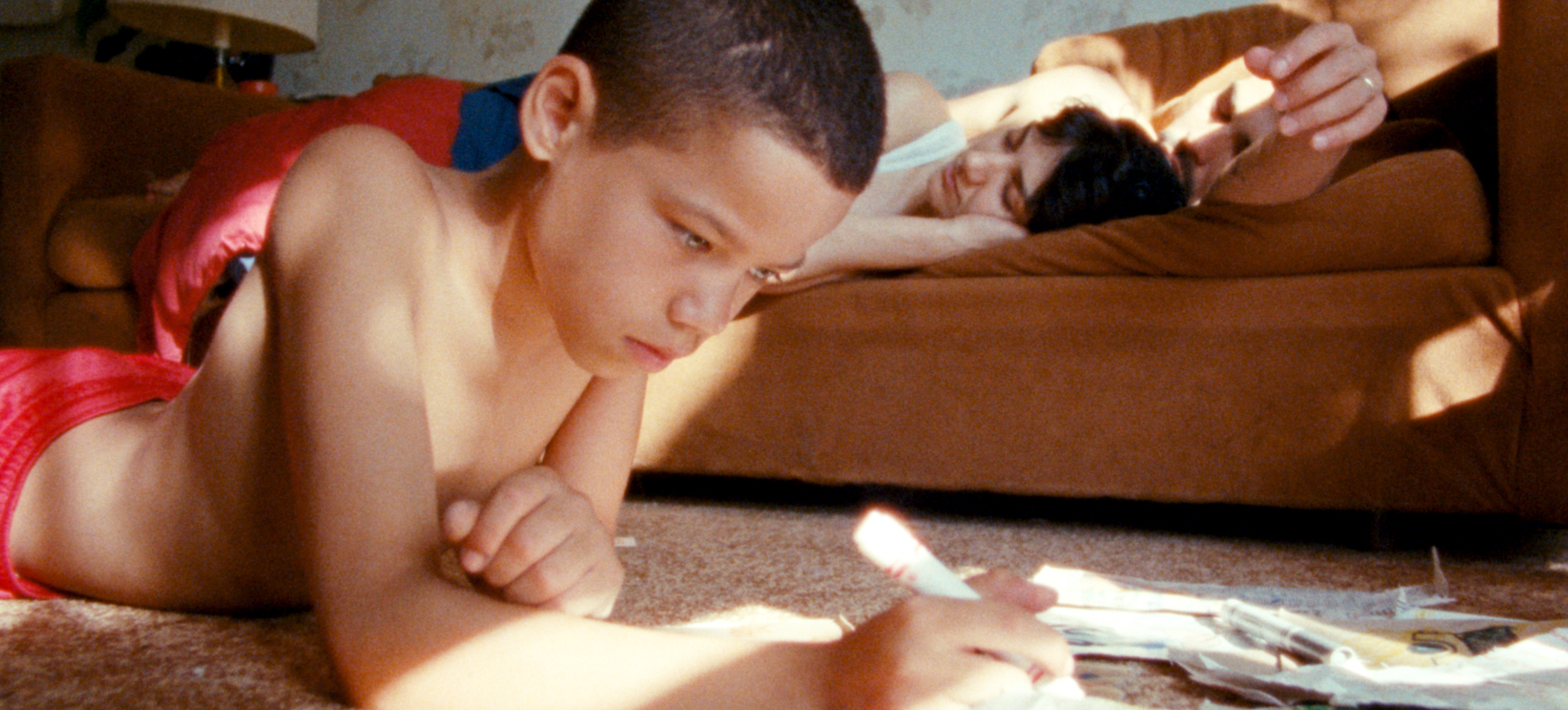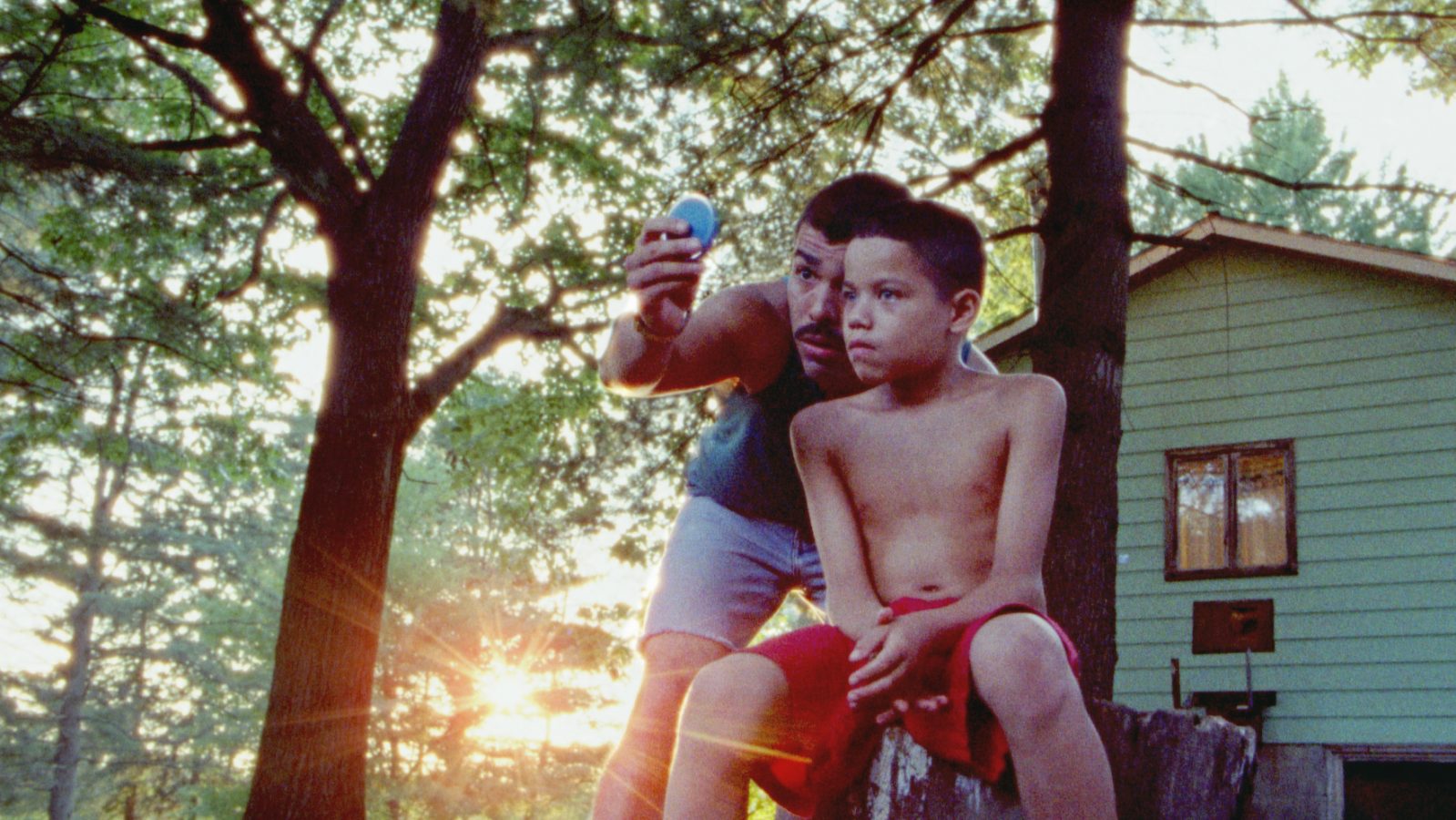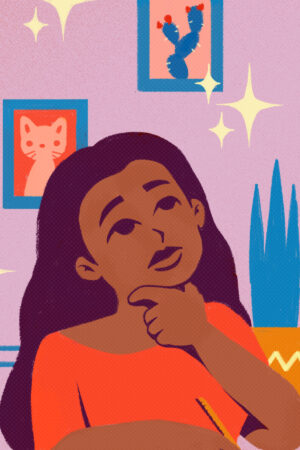When Justin Torres sat down to write what would become his first novel We The Animals, he knew he wanted to explore complicated, troubled masculinity. More specifically, the kind of machismo he’d grown up with as the son of an abusive Puerto Rican father. He didn’t quite write a memoir. But it’s hard not to feel the weight of personal trauma hanging over the pages of We The Animals, which portrays a violent and volatile family made up of three young boys, their Puerto Rican father and their white mother. First published in 2011, the rural upstate New York-set book has been adapted into a feature film by Jeremiah Zagar that first premiered at the Sundance Film Festival. Starring Raúl Castillo as “Paps,” Sheila Vand as “Ma” and a trio of first-time performers, including breakout star Evan Rosado as Jonah, the movie is that rare accomplishment that feels of a piece with its source material while also being its own remarkable achievement.
In writing the book and working through his own family trauma, Torres had to tread a fine line in capturing the anger he felt but filtering it through an empathetic lens. “Why would a father hurt his child if all he wants to do is protect that child?” he remembers asking himself. “Like, how does that make sense in his mind?” He realized that such violence comes from fear, knowing that the world is going to be hard on that kid. Such interest in machismo all the while telling a story about a young queer brown kid (what’s earned the film Moonlight comparisons) is what made letting the book be adapted such a gamble. Torres wouldn’t leave it to anyone to try and tackle the prickly issues and scenes he captures on the page — everything from Paps beating Ma almost in front of their kids, to his narrator finding his way through a budding same-sex attraction.

In Zagar’s hands Torres knew he wouldn’t have to worry. His was an approach that comforted Torres, not least because it contrasted to the kind of Hollywood talk he’d heard at meetings. One executive, for example, had tried to woo the writer by telling him his book could be adapted into a TV series that would be ‘Breaking Bad meets Malcolm in the Middle’ (“That made no sense to me!”).
The result is a film that feels ripped straight from Torres’ poetic prose. With added animated sequences that riff on the sketches that young Jonah spends his nights scribbling in notebooks under the bed he shares with his brothers, the drama finely skirts the line between the innocence of child protagonist and the adult themes around him.
“It was really really trippy,” Torres admitted when describing what it felt to see his story come to life. It’s one thing to write a dreamy, fictionalized version of your life, but it’s quite another to see that version then be turned into a dreamy big-screen project. And while at first he had not been interested in being a part of that process at all, he ended up being involved quite a bit, visiting the set and offering feedback as required. That led to some truly surreal moments. Some funny, some sad.

With a laugh, Torres remembered one particular day on set when Castillo, in his underwear, was acting out a family fight that Torres had actually lived through. “Raúl is very attractive, you know? And here he is yelling, having a fight my family had had, just in his tighty-whities. And we’re basically the same age but he’s playing my father — or a version of my father.” He paused trying to find the right words, still mesmerized by the image he was conjuring. “It was all very Freudian.”
At others the shoot cut too close to home. He’d lived with this story of violence in the home for years. And he’d lived through a family that was quite violent — he remembers bruises on himself and his brothers. But when he saw a make-up artist paint a realistic bruise on one of the young boys in the film, he was transported.
His visceral reaction, equal parts sadness and shame, speaks to the power of film as a visual medium. What’s turned the story of Jonah, a young brown boy slowly finding himself in a household that may not understand him, into one of the most heartbreaking and provocative movies of the year.
We The Animals opens in New York on August 17 and in Los Angeles on August 24, 2018.







